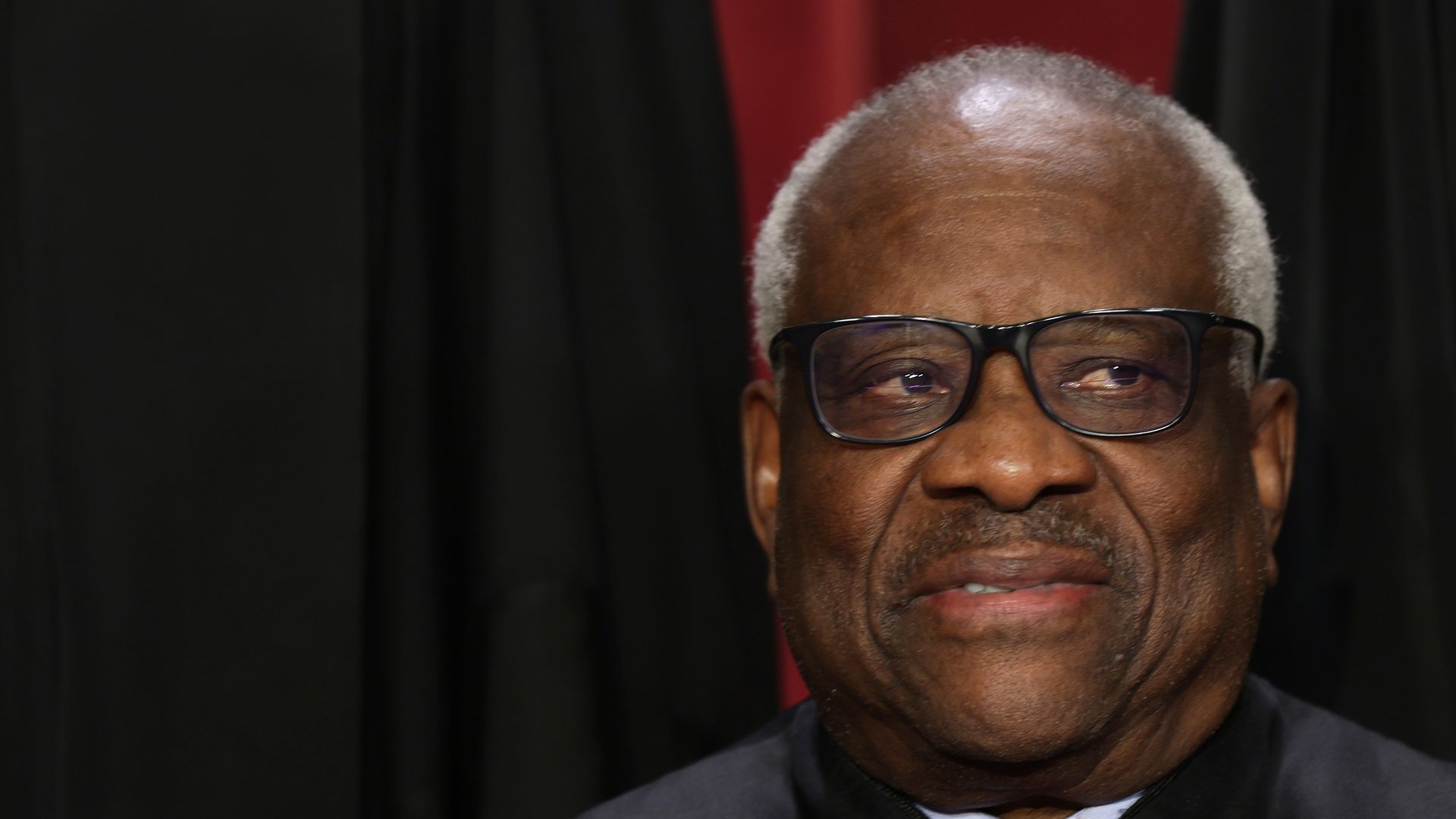
Supreme Court Justice Clarence Thomas issued a strong rebuke of the Brown v. Board of Education ruling on Thursday, suggesting the court overreached its authority in the landmark decision that banned separating schoolchildren by race.
Why it matters: Thomas attacked the Brown decision in a concurrence opinion that allowed South Carolina to keep using a congressional map that critics say discriminated against Black voters.
Driving the news: The court "took a boundless view of equitable remedies" in the Brown ruling, wrote Thomas, who in 1991 replaced Supreme Court Justice Thurgood Marshall — the first Black Supreme Court Justice and the lead lawyer in the Brown case.
- Those remedies came through "extravagant uses of judicial power" to end racial segregation in the 1950s and 60s, Thomas wrote.
- Federal courts have limited power to grant equitable relief, "not the flexible power to invent whatever new remedies may seem useful at the time," he said, justifying his opinion to keep a predominantly white congressional district in South Carolina.
- The 9-0 decision declared the "separate but equal" doctrine unconstitutional and helped usher in the Civil Rights Movement, though it took two decades to dismantle some school segregation policies.
- Racial segregation in schools across the country has increased dramatically over the last three decades, according to two new reports and an Axios review of federal data.
- The resegregation of America's public schools coincides with the rise of charter schools and school choice options and as civil rights groups have turned away from desegregation battles.
Between the lines: Thomas has always been viewed suspiciously — if not downright hated — by civil rights advocates for repackaging arguments once made by segregationists in the name of supporting broad beliefs about limited government action.
- His concurring opinion also comes as he faces criticism following a ProPublica ethics investigation last year, which found that he failed to disclose costly trips sponsored by a noted Republican megadonor.
- Critics have also spotlighted Thomas' wife, Ginni Thomas, for trying to reverse the 2020 presidential election results and Justice Thomas for not recusing himself from Supreme Court decisions about the Jan. 6 Capitol riot.



 and
and 


